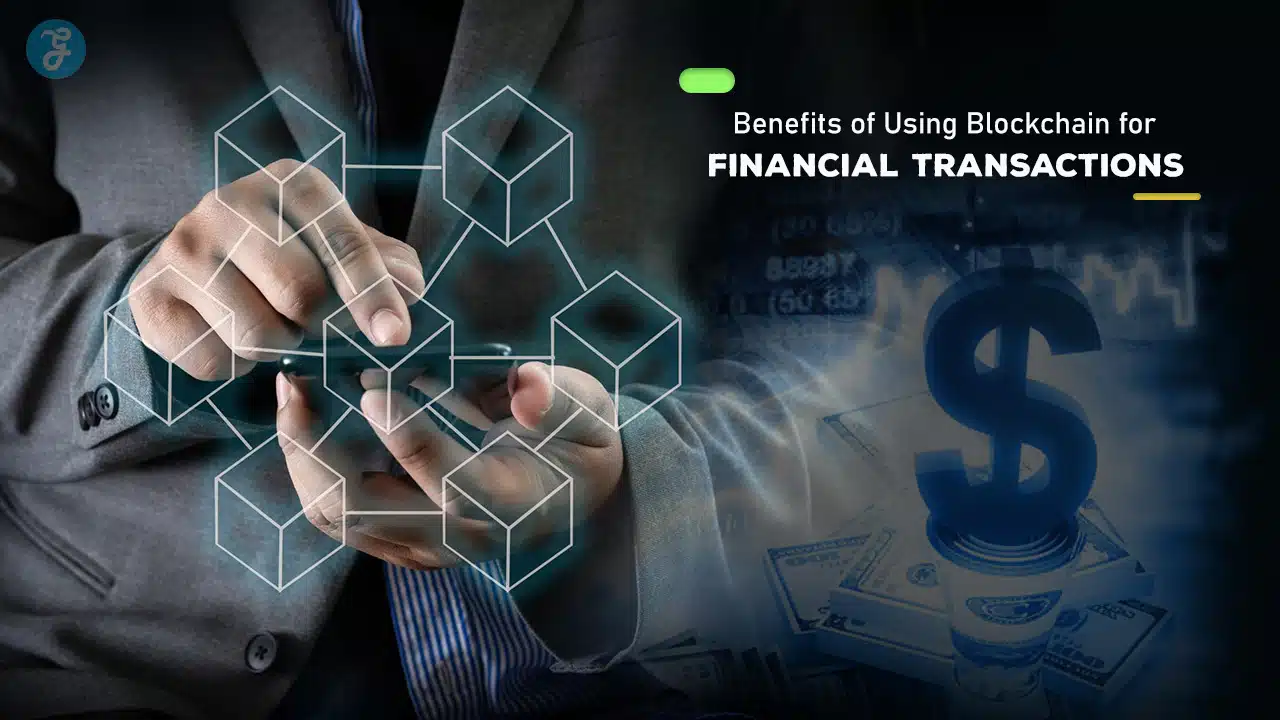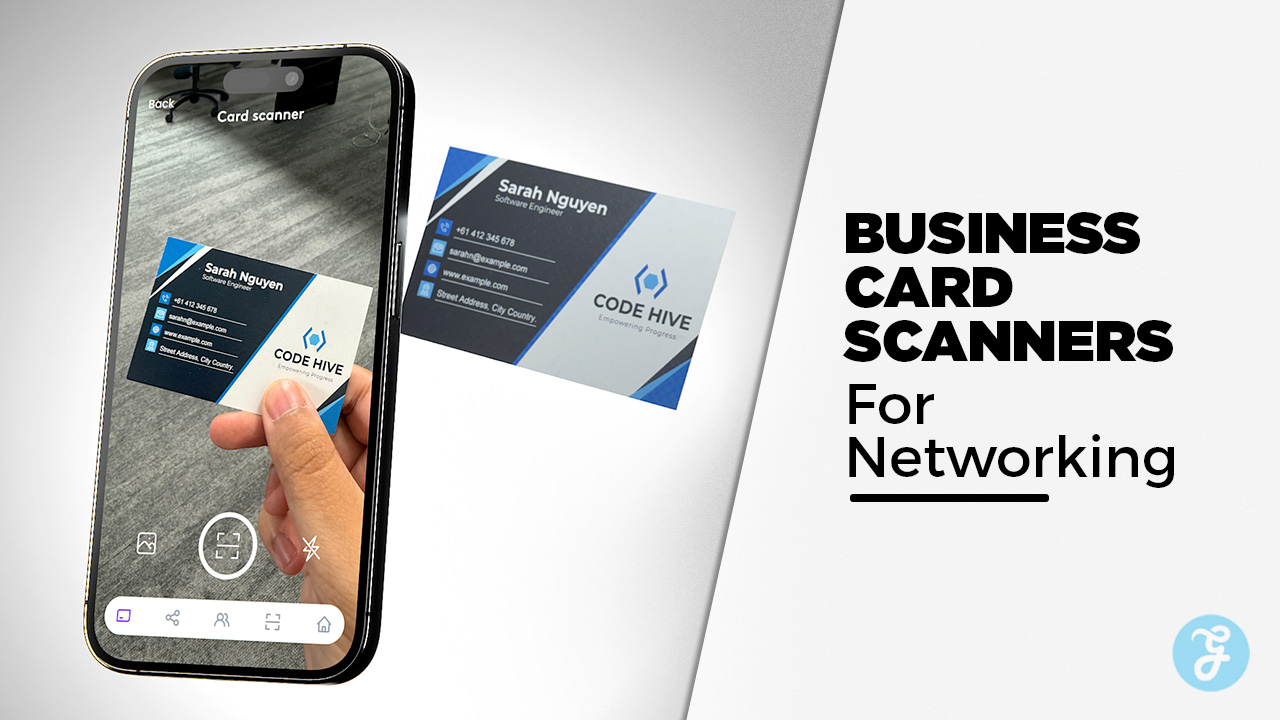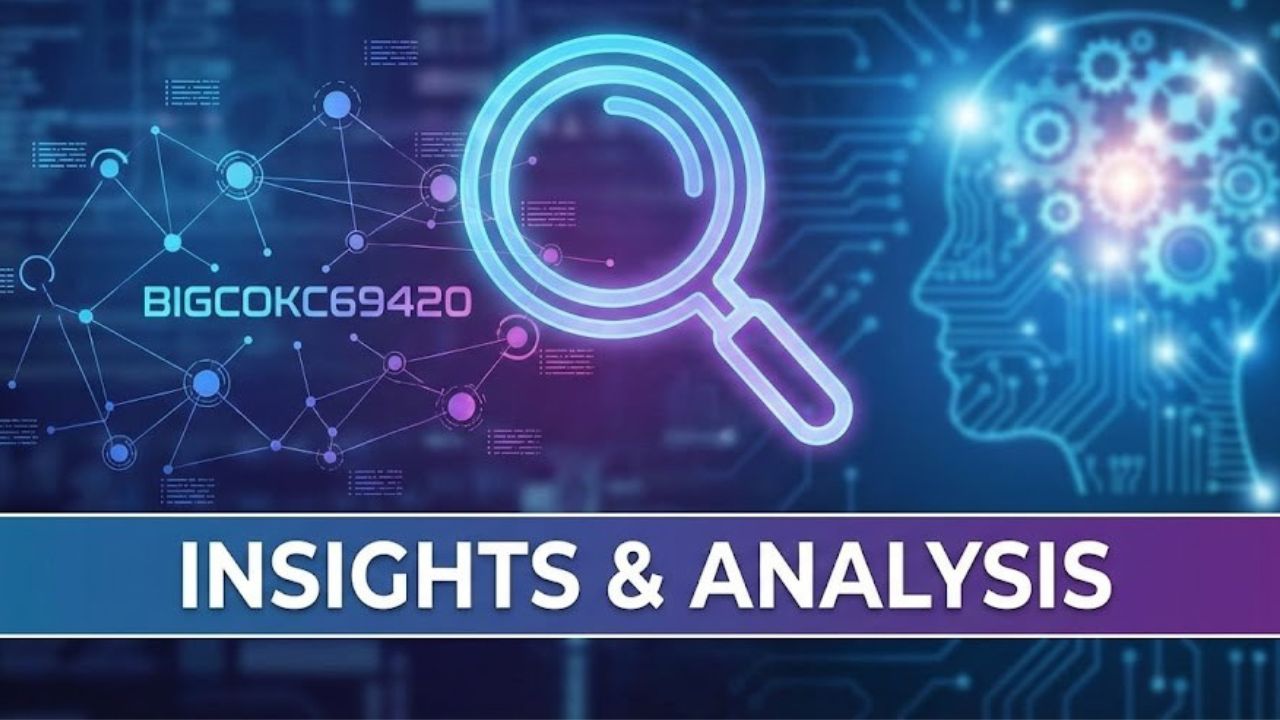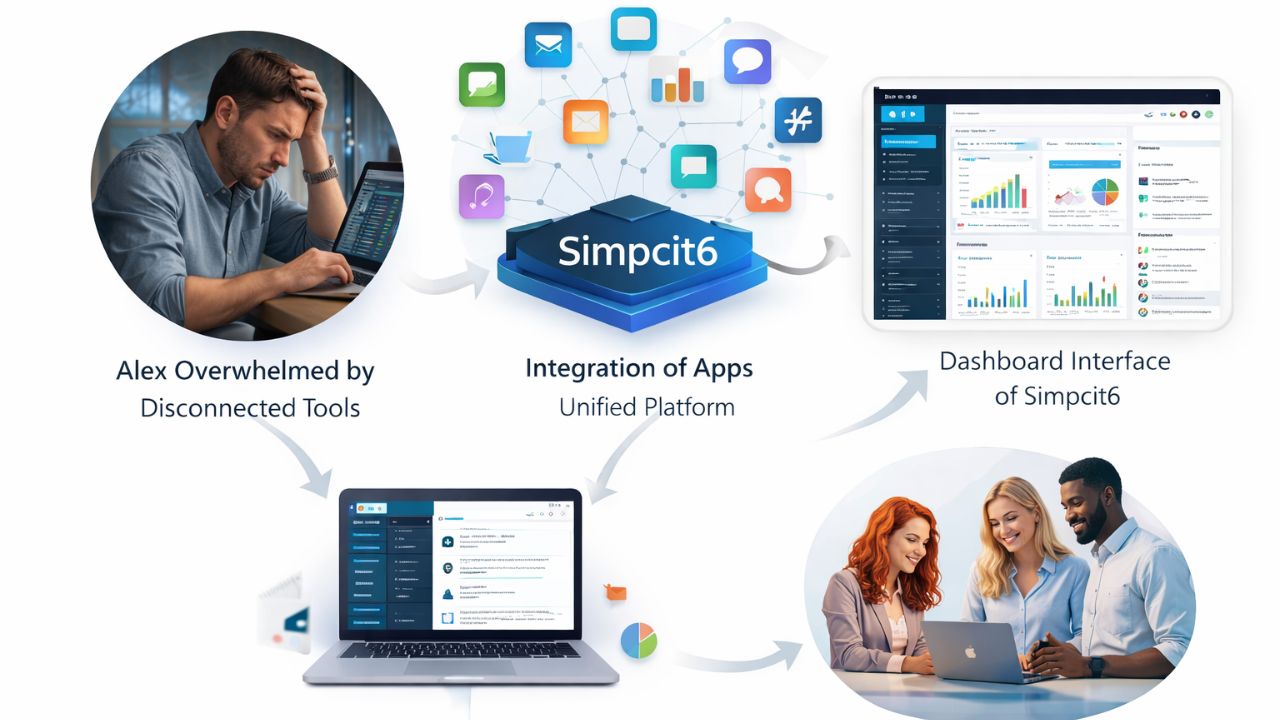As blockchain technology gains traction worldwide, it’s transforming the way financial transactions are conducted, offering significant benefits that are reshaping the financial industry.
Blockchain’s decentralized nature, coupled with its ability to create transparent, tamper-proof ledgers, offers unparalleled advantages for financial transactions that traditionally rely on a series of intermediaries.
Originally designed to support cryptocurrencies like Bitcoin, blockchain has since found uses in areas ranging from secure payments and anti-money laundering (AML) compliance to decentralized finance (DeFi) solutions and cross-border transactions.
Here’s a detailed look at the top 10 benefits of using blockchain for financial transactions and why this technology is paving the way for a secure, efficient, and inclusive financial future.
1. Enhanced Secur3ity
Security is one of the most critical factors in financial transactions.
Traditional financial systems rely on centralized servers and intermediaries, making them vulnerable to cyberattacks and data breaches.
The decentralized ledger technology (DLT) used by blockchain, on the other hand, encrypts, verifies, and stores every transaction across a distributed network.
This decentralized, tamper-proof structure significantly improves security.
Key Security Benefits
- Immutable Ledger
Blockchain’s immutability means that once a transaction is recorded, it cannot be altered or erased. This immutability creates an unchangeable, time-stamped record of every transaction, reducing the risk of fraud and tampering. - Decentralized Data Storage
Blockchain’s decentralized nature makes it far less vulnerable to hacking. Instead of a single point of failure, data is stored across multiple nodes (computers), each of which holds a copy of the entire blockchain. For a hacker to successfully alter the ledger, they would need to hack a majority of nodes simultaneously—a virtually impossible task on large networks. - Advanced Cryptography
Blockchain technology uses advanced cryptographic techniques to secure each transaction. Every transaction is hashed (converted into a secure digital fingerprint), and these hashes are linked to the previous transaction, creating an unbreakable chain.
Blockchain’s enhanced security measures make it particularly attractive for banks, financial institutions, and individuals who want to conduct secure, private transactions.
The combination of decentralization, cryptographic security, and immutability creates a robust and secure environment for handling sensitive financial data.
2. Greater Transparency
Transparency is a cornerstone of blockchain technology. In traditional finance, much of the transaction data is hidden from the public, making it challenging for consumers to verify claims and understand the movement of funds.
Blockchain brings a new level of transparency by providing a distributed ledger that anyone can view and verify.
Key Transparency Benefits
- Public Ledger Accessibility
For blockchains like Bitcoin and Ethereum, all transactions are publicly accessible, meaning that any participant can view the transaction history. This transparency builds trust and allows users to track and verify transactions independently, reducing the need for blind trust in intermediaries. - Improved Accountability
Blockchain’s transparency ensures that every transaction is visible and verifiable by anyone, leading to greater accountability. This feature is particularly beneficial in corporate finance, where stakeholders can independently verify a company’s transactions and financial integrity. - Reduced Fraud
Blockchain’s transparent structure helps combat fraud by providing an easily traceable transaction history. Since every transaction is publicly recorded, it is challenging for bad actors to manipulate or hide fraudulent activity without being noticed.
Blockchain’s transparency is instrumental in creating trust within the financial sector, particularly in cross-border transactions where parties may not have an established relationship.
By making every transaction visible, blockchain enables a level of openness and accountability that is difficult to achieve with traditional finance systems.
3. Reduced Transaction Costs
One of the most compelling benefits of blockchain technology is its ability to reduce transaction costs.
In traditional finance, transactions often involve numerous intermediaries—such as banks, clearinghouses, and payment processors—each taking a fee for their services.
Blockchain eliminates these intermediaries, allowing for direct peer-to-peer (P2P) transactions, which significantly lowers transaction costs.
Key Cost-Reduction Benefits
- No Need for Intermediaries
Blockchain facilitates direct transactions between parties, effectively eliminating the need for middlemen like banks and clearinghouses. This peer-to-peer structure reduces costs associated with third-party involvement and makes transactions more affordable. - Lower Processing Fees
Traditional financial institutions impose a range of fees, from transfer fees to currency conversion charges. Blockchain reduces or eliminates these fees by streamlining the transaction process, making it especially beneficial for international payments. - Affordable Cross-Border Payments
Cross-border payments, typically costly due to intermediary fees and currency exchanges, become significantly cheaper on blockchain. Blockchain-based payment solutions like Ripple and Stellar offer low-cost, near-instantaneous cross-border transfers.
For businesses, especially those operating internationally, the cost savings from blockchain can be substantial.
By eliminating middlemen and reducing processing fees, blockchain makes financial transactions more cost-effective and accessible.
4. Faster Transaction Processing
In traditional financial systems, transactions—especially cross-border payments—can take days or even weeks to process due to a series of checks, verifications, and intermediaries involved.
Blockchain eliminates these delays by enabling direct, automated transactions that settle almost instantly.
Key Speed Benefits
- Instant Cross-Border Payments
Blockchain enables real-time cross-border transactions, bypassing traditional banking networks and associated delays. For individuals and businesses engaged in international trade, blockchain’s speed is invaluable, as it provides immediate access to funds without waiting for lengthy bank processing times. - Automated Smart Contracts
Blockchain’s smart contract capabilities further enhance transaction speed. Smart contracts are self-executing agreements embedded on the blockchain. When predefined conditions are met, they automatically carry out the contract’s terms, eliminating the need for manual verification and drastically reducing settlement time. - Real-Time Settlement
Blockchain’s peer-to-peer nature allows for real-time settlements, ensuring that funds are transferred immediately without requiring third-party intervention. This is a significant advantage for financial institutions, reducing the need for complex reconciliation processes and error checks.
The ability to process transactions almost instantly is one of blockchain’s greatest strengths, making it ideal for high-frequency trading, real-time payments, and cross-border business operations where delays could impact profitability.
5. Increased Accessibility
Blockchain technology opens up financial services to underserved populations, particularly those in remote or underbanked regions.
Unlike traditional banking, which often requires physical branches and costly infrastructure, blockchain operates on a decentralized network accessible through the internet, making financial services more widely available.
Key Accessibility Benefits
- Financial Inclusion for the Unbanked
Blockchain enables people without access to traditional banking systems to conduct transactions securely and affordably. For example, through blockchain, individuals can send and receive money, save, and access micro-loans without the need for a traditional bank account. - Mobile-First Financial Solutions
Many blockchain-based platforms are mobile-friendly, allowing people with limited resources to access financial services through smartphones. This feature is particularly valuable in regions with high mobile penetration but low banking infrastructure, offering new opportunities for economic participation. - Peer-to-Peer (P2P) Lending and Remittance Services
Blockchain facilitates peer-to-peer lending and remittance services, enabling users to access loans and transfer funds directly without relying on banks. Platforms like BitPesa and Abra use blockchain to offer remittance services that are faster and cheaper than traditional options.
Blockchain’s accessibility empowers individuals and small businesses by providing them with tools to participate in the global economy, leading to greater financial independence and growth opportunities.
6. Enhanced Privacy for Users
Although blockchain is known for transparency, it also provides a high degree of privacy for users.
While public blockchains allow anyone to view transactions, private blockchains restrict access to authorized users, ensuring privacy while maintaining transparency for those with permission.
This balance of transparency and privacy makes blockchain particularly appealing for high-stakes financial transactions.
Key Privacy Benefits
- Permissioned Blockchain Access
Private or permissioned blockchains limit transaction visibility to authorized users, ensuring that only trusted parties have access to sensitive information. - Pseudonymous Transactions
Blockchain allows for pseudonymous transactions, where users can conduct transactions without revealing their identity. This pseudonymity protects user privacy while enabling accountability, as transactions are still traceable on the blockchain. - Data Encryption
Blockchain transactions are encrypted, meaning that sensitive financial data remains secure and private. Only authorized parties can view the contents of encrypted transactions, which is vital for maintaining privacy in financial operations.
Enhanced privacy through blockchain helps protect sensitive financial information while providing a transparent and traceable framework for transactions.
7. Immutable Record Keeping
Blockchain’s immutable ledger technology ensures that once a transaction is recorded, it cannot be changed or deleted.
This feature is essential in finance, where maintaining a permanent and tamper-proof record is crucial for trust, compliance, and accountability.
Key Immutability Benefits
- Tamper-Proof Records
Blockchain’s immutability prevents unauthorized changes, making it virtually impossible to alter transaction records once they’re on the blockchain. This tamper-proof nature is particularly beneficial in industries where financial integrity is paramount. - Auditable Trails
Blockchain’s permanent record of transactions creates an easily traceable and auditable trail, which simplifies compliance and auditing processes for financial institutions. Regulatory authorities can quickly verify transaction history without manual reconciliation. - Transparent Record of Ownership
Blockchain’s immutability provides a clear record of asset ownership, which is beneficial for financial transactions involving assets like stocks, bonds, or real estate. This feature reduces the risk of fraud and disputes.
Blockchain’s immutability ensures that financial records remain consistent and accurate, making it a valuable tool for institutions that prioritize rigorous tracking and compliance.
8. Automated Compliance through Smart Contracts
Smart contracts are self-executing agreements built into blockchain systems that automatically enforce the terms of a contract when specific conditions are met.
Smart contracts help automate compliance processes, reduce administrative burdens, and enhance accuracy.
Key Compliance Benefits
- Real-Time Enforcement
Smart contracts enforce compliance automatically, ensuring that all conditions are met without the need for manual intervention. - Reduced Human Error
By automating compliance, smart contracts minimize human error and reduce the risk of non-compliance, which can lead to regulatory penalties. - Efficient Regulatory Oversight
With blockchain, regulatory agencies can monitor transactions in real-time, enabling quicker identification of non-compliance and enhancing oversight capabilities.
Automated compliance is particularly beneficial for regulated industries, where blockchain can significantly reduce the costs associated with compliance management.
9. Improved Traceability in Financial Transactions
Blockchain’s transparent and immutable ledger allows for complete traceability of financial transactions, making it easier to track the movement of funds.
This traceability is essential for supply chain finance, anti-money laundering efforts, and more.
Key Traceability Benefits
- Supply Chain Verification
Blockchain can trace the flow of goods and payments within supply chains, ensuring that each transaction is accurately recorded and verified. - Anti-Money Laundering (AML) Efforts
Blockchain’s traceability supports anti-money laundering by creating an auditable trail of transactions, making it easier to detect and prevent illicit activities. - Fraud Prevention
Transparent tracking of transactions helps identify suspicious patterns and prevent fraudulent activities, improving security and trust in financial systems.
Improved traceability through blockchain makes it easier for financial institutions to meet regulatory requirements, prevent fraud, and foster a secure, transparent financial environment.
10. Environmental and Cost Benefits through Energy-Efficient Blockchains
Early blockchain models, such as Bitcoin, faced criticism for their high energy consumption.
However, newer blockchains are adopting more sustainable, energy-efficient consensus mechanisms, offering environmental and cost benefits.
Key Environmental and Cost Benefits
- Energy-Efficient Consensus Mechanisms
Newer blockchains utilize Proof of Stake and other low-energy protocols, reducing the environmental impact of blockchain transactions. - Reduced Operational Costs
Energy-efficient blockchains are more cost-effective, providing affordable financial services and supporting sustainable practices. - Sustainability in Finance
Environmentally friendly blockchain systems align with corporate sustainability goals, fostering greener technology adoption.
Sustainable blockchain models demonstrate how the financial industry can adopt cutting-edge technology without incurring high environmental costs, offering a responsible way forward.
Conclusion: The Future of Finance with Blockchain Technology
Blockchain is reshaping financial transactions, providing an array of benefits that promise a secure, efficient, and accessible financial ecosystem.
From its secure and transparent structure to its reduced costs and improved accessibility, blockchain is redefining finance for businesses, individuals, and institutions alike.
Embracing blockchain is not only a step towards innovation but also a commitment to a more transparent, accessible, and sustainable financial future.







































